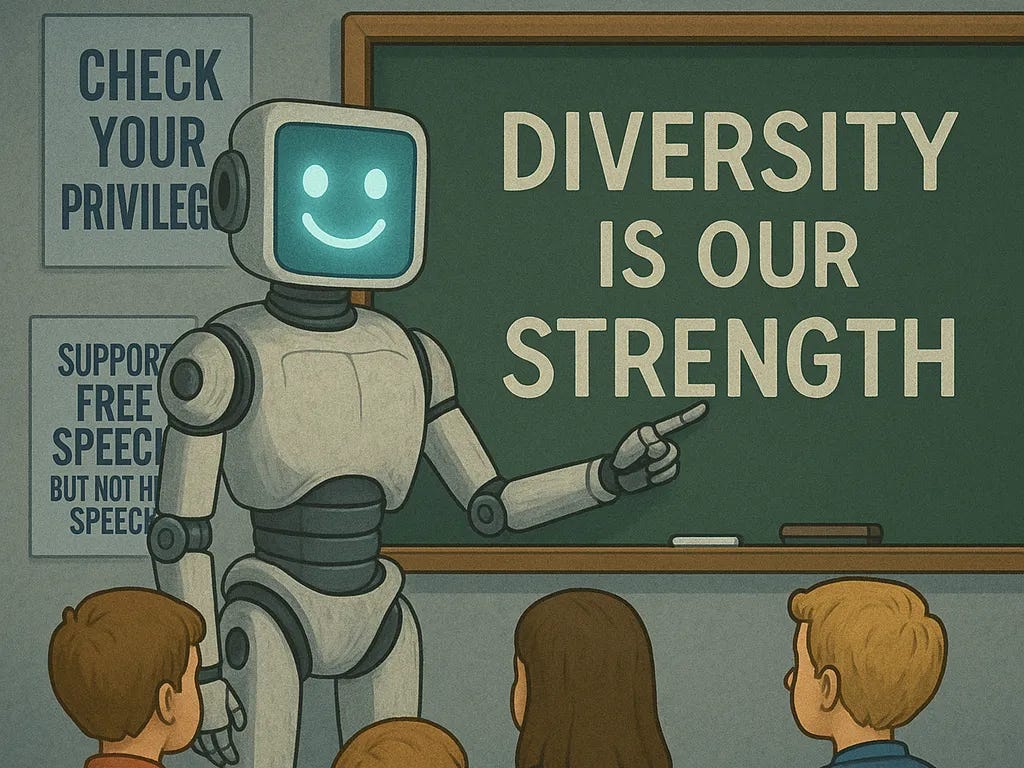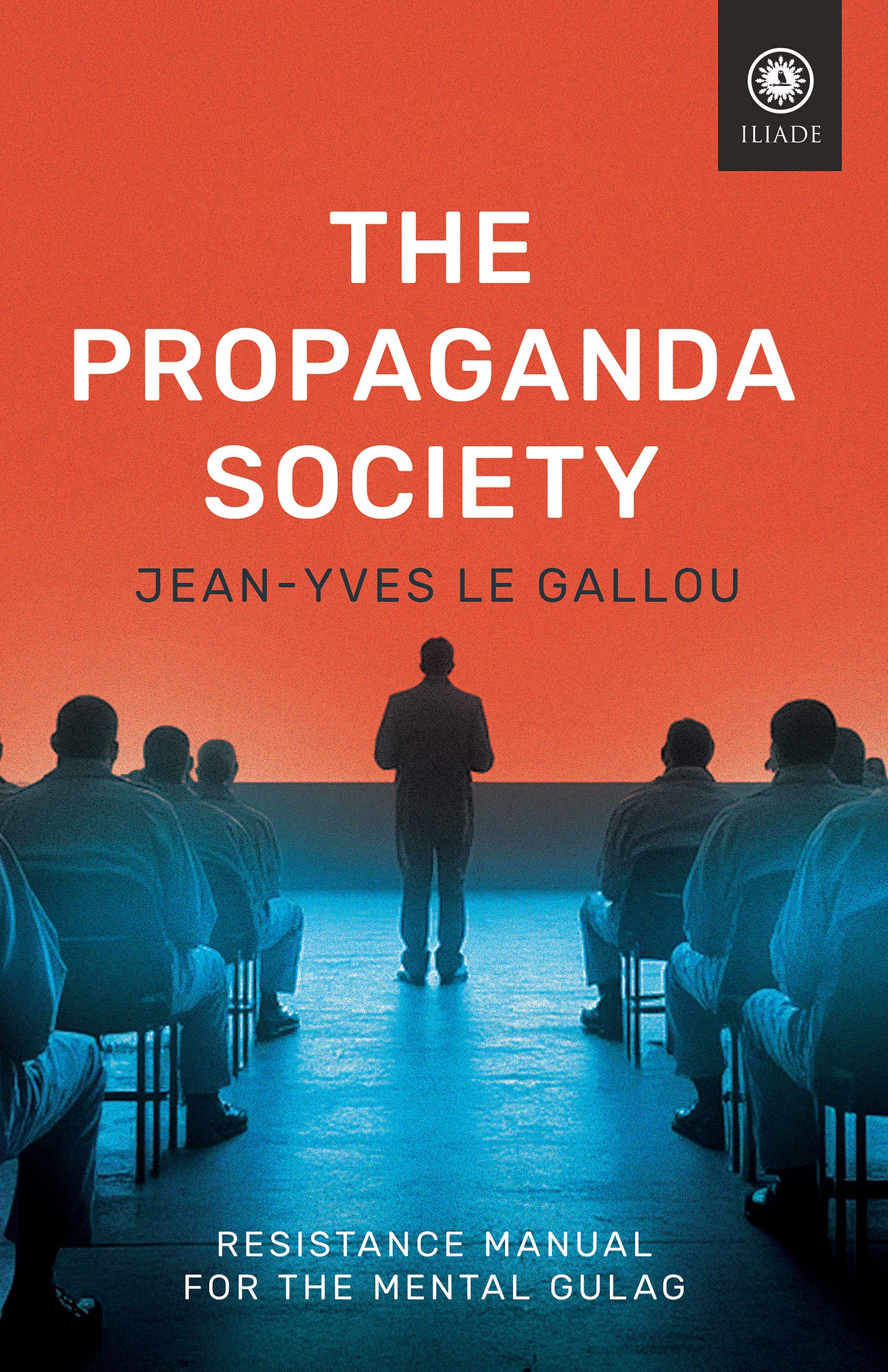The Soft Totalitarianism of the Mental Gulag
Book Review: ‘The Propaganda Society’ by Jean-Yves Le Gallou
Alexander Raynor reviews Jean-Yves Le Gallou’s The Propaganda Society as a penetrating exposé of how liberal democracies mask ideological control as open discourse, urging a reclaiming of intellectual freedom and cultural identity.
Jean-Yves Le Gallou’s The Propaganda Society: Resistance Manual for the Mental Gulag is a searing, erudite, and provocative critique of the contemporary Western world’s mechanisms of ideological control. Translated into English by Roger Adwan and published by Arktos in 2025, this work reads as both a cultural analysis and a call to intellectual and civil resistance against what Le Gallou characterizes as a “mental gulag” of omnipresent propaganda. With eloquence and fervor, Le Gallou exposes how mass communication, media systems, academia, entertainment, and even art have been enlisted in an all-encompassing campaign to shape, homogenize, and control thought in the postmodern West.
From its opening preamble, the book makes no apologies about its ambitious goal: to diagnose the total nature of contemporary propaganda and arm readers with the conceptual tools to resist it. Le Gallou begins by tracing the historical lineage of propaganda, from Caesar’s Gallic Wars to Edward Bernays’ seminal Propaganda, highlighting how persuasive messaging has evolved from supporting cohesive traditional societies to managing fragmented, atomized ones. His thesis is simple and powerful: propaganda today is no longer an accessory to culture or politics — it is culture and politics. It permeates every sphere of public and private life, serving not to preserve identity or tradition, but to dissolve them.
The structure of The Propaganda Society is both thematic and cumulative. Each chapter unveils a new layer of the ideological edifice he seeks to deconstruct: the “total propaganda” that saturates our media and public discourse, the “totalitarian propaganda” that enforces ideological orthodoxy through soft censorship and social pressure, and the “mass propaganda” of advertising, popular culture, and education. Le Gallou is at his most convincing when detailing how modern propaganda does not simply advocate — it engineers consensus by controlling the Overton window, rendering once-normal ideas unspeakable while elevating fringe positions to moral imperatives.
One of the book’s greatest strengths lies in its breadth of cultural references. Le Gallou is not merely polemic; he is deeply literate, weaving together references from Konrad Lorenz to Renaud Camus, from Machiavelli to Naomi Klein. He critiques media bias not only with statistics and studies but also through close readings of images, narratives, and symbols. Whether discussing the semiotics of advertising or the editorial framing of geopolitical conflicts, he reveals how language and aesthetics are weaponized to steer perception.
Perhaps the most compelling chapter is the one on “professional and methodical propaganda,” where Le Gallou revisits Jean-Marie Domenach’s five laws of propaganda1 — simplification, exaggeration, repetition, transfusion, and unanimity — and demonstrates their uncanny relevance in our digital age. Through vivid examples, he illustrates how a single narrative, be it on climate change, migration, or health crises, can dominate the global discourse via orchestrated repetition and emotional manipulation. The reader comes away with a new lens through which to interpret the barrage of information they encounter daily.
Le Gallou’s diagnosis extends beyond critique to strategy. The second half of the book, particularly in “From Secession to Reconquest,” offers not only a deconstruction of propaganda mechanisms but a programmatic response. He calls for cultural and intellectual “secession” — a mental withdrawal from conformist institutions, followed by a “reconquest” of meaning, identity, and truth. This proposal is not merely reactionary; it is constructive. Le Gallou champions the reinvigoration of organic communities, national cultures, and rooted traditions as bulwarks against the homogenizing force of globalist ideology.
One cannot overlook the translation’s role in delivering this message. Roger Adwan’s English rendering of the original French text is faithful, clear, and forceful. It preserves the rhetorical sharpness and literary flair of Le Gallou’s prose, allowing Anglophone readers to appreciate the author’s stylistic precision and argumentative rigor.
What makes Le Gallou’s treatise so powerful is not merely its critique of the current regime of “communication,” but its affirmation of an alternative vision. The author’s lament for the loss of rooted communities, shared values, and organic social order is not nostalgic escapism, but a call for cultural recovery. He challenges us to resist not only lies, but the very erosion of the capacity for truth-telling. In an age where dissent is often caricatured as “hate,” and nuance is lost to algorithmic uniformity, Le Gallou offers a rigorous and necessary reminder: that freedom of thought is the first freedom and the most fragile.
In conclusion, The Propaganda Society is an incisive and necessary work. It succeeds as both diagnosis and manual, as both cultural critique and political roadmap. Whether one agrees with all of Le Gallou’s positions or not, the book demands to be taken seriously. It compels the reader to rethink the forces that shape our reality and to consider what true resistance looks like in an age of soft totalitarianism. For those seeking to understand the ideological battles of the 21st century — and how to resist them — this book is indispensable.
Order The Propaganda Society: Resistance Manual for the Mental Gulag.
Domenach, Jean-Marie. La propagande politique. Paris: Presses Universitaires de France, 1950.





Diversity is what scrambles the just following order gulag.
In the Star wars series obiwan hides among Aliens from the empire.
You Russian agents are the npcs
When you push the total war concept to the extreme, when not only every economic aspect in a society is geared for and judged by its war-fighting value, but also every person, wearing uniform or not, must fight the war in their brains and speeches, then you have this mental gulag. In a sense, the "normal" military also operates somewhat like this because few militaries in the world can afford to allow free-thinkers in the military to challenge the "narratives". The power elites now just drive every civilian as a soldier and everything he civilians do are treated as part of the war.